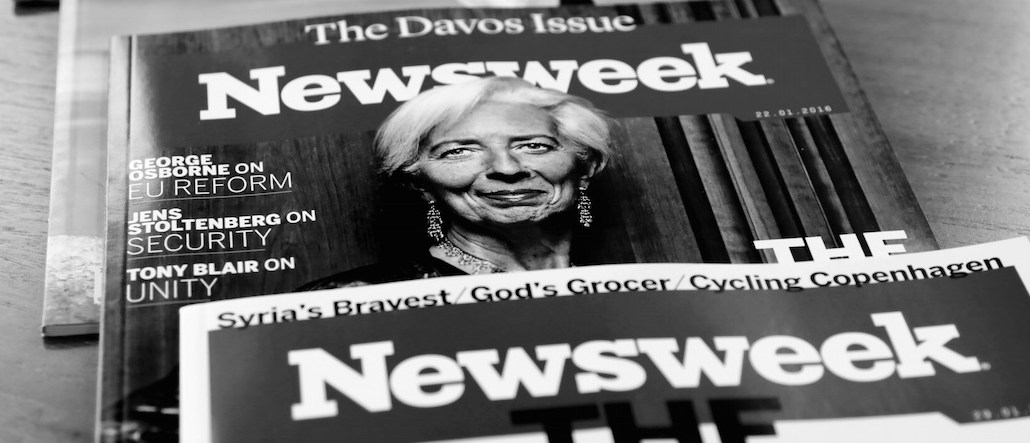Secure your place at the Digiday Media Buying Summit in Nashville, March 2-4

While IBT Media is slashing editorial staff in the U.S., it’s hiring up in Europe to expand its newsroom, open a branded content studio, and build out an events arm.
The publisher made waves in the U.S. by axing three quarters of editorial staffers just a month ago — and then igniting their ire by neglecting to pay them. But the story is different in Europe, where staff has grown by 20 percent in the past six months to reach 120. The new staffers in London include head of social, head of platforms, marketing producer, as well as data analysts.
“The growth in EMEA is steady, surely and strategic,” said COO Greg Witham, adding that the London operations are “unaffected by that side of things.” Previously, the two regions have had separate chiefs. Last month, Dev Pragad was promoted from managing director of Europe to global CEO of Newsweek and IBT. “Before, we’ve not had a unified global CEO; now there’s more potential for further collaboration,” Witham said.
One key in Europe is not to rely on a mass audience and display advertising strategy. Previously, the publisher’s branded content output was slim to none; now all clients are asking for some kind of native solution, according to Witham.
“We’re seeing the desire for it, and it’s not reached its peak. IBTailored gives it a place to live,” he said. “We didn’t invent this; we’re coming out of a long startup phase, and now we have more people joining from brand houses, so we’re going to the market with a more cohesive offering.”
The content studio division, IBTailored, is launching with five team members. The publisher has hired a creative director, Richard Remington, formerly at the The Wall Street Journal, and Pamela Ferrari-Blanchard, who will join the business as sales director in October from Hearst Magazines UK. The London hub will service its global clients, chosen for its favorable time zone in dealing with both Asia and the Americas. It will build out sales shops in other territories as needed.
Every publisher now has a branded content unit; each touts its own audience as its selling point. Newsweek, with more in-depth coverage on foreign affairs, technology and business, has the print heritage. The publisher’s own figures find people are spending a solid 12 minutes on the site, and its best-performing articles are up to 3,000 words long. IBTimes, with shorter pieces and more millennial-skewing readers, has a larger audience and more content verticals, like finance, entertainment and sport.
Internal Google Analytics show that IBTimes hit nearly 23 million unique users in July, and 2.5 unique users for Newsweek, but these don’t account for singular users on multiple devices. While comScore, which hasn’t yet compiled figures for July, finds that IBT Media’s brands altogether have hovered around the 5 million monthly unique mark since January.
“There is an opportunity in that space; there is a lot of branded content that isn’t done well,” said Tom Sheppey, account director at Total Media, who also said IBT Media was late to the party for content studio.”Too often, branded-content arms are little more than a glorified extension of the sales team. If they excel, it will need to be in things that agencies can’t do themselves, a deep knowledge of their audience and data behind it. But I fear they could be putting eggs into a basket that has already proven to have holes in it.”
Witham was unable to name launch clients or campaigns, only saying that it will offer native articles, videos and podcasts. Events could also feature too now the publisher is opening an events division, so far staffed just by Justin Tadman from Reed Exhibitions. The first events will run this autumn. Witham couldn’t give specifics but said they could include day conferences, weeklong events, tailored to consumers and businesses, across all content verticals like science, technology and sustainability, and could be either IBT branded or standalone and not linked to IBT Media’s titles. It’s an ambitious undertaking, and doing each of these to a high standard will be a challenge.
“It’s an investment of cash, an investment of time and and focus,” said Witham, “but we believe we have the talent for it.”
The news to branch out into branded content is unsurprising, according to Dino Myers-Lamptey, head of strategy at The 7 Stars, as all publishers are looking for new revenue streams to bolster falling ad prices. Unable to give details, Witham claims that digital and newsstand revenue is increasing.
“If they focus on operating across territories as one collaborative organization with a streamlined workforce and cost base,” said Myers-Lamptey, “then I can see all kinds of advantages to be had by having a local presence for branded content and events.”
Images courtesy of Newsweek.
More in Media

From feeds to streets: How mega influencer Haley Baylee is diversifying beyond platform algorithms
Kalil is partnering with LinkNYC to take her social media content into the real world and the streets of NYC.

‘A brand trip’: How the creator economy showed up at this year’s Super Bowl
Super Bowl 2026 had more on-the-ground brand activations and creator participation than ever, showcasing how it’s become a massive IRL moment for the creator economy.

Media Briefing: Turning scraped content into paid assets — Amazon and Microsoft build AI marketplaces
Amazon plans an AI content marketplace to join Microsoft’s efforts and pay publishers — but it relies on AI com stop scraping for free.





